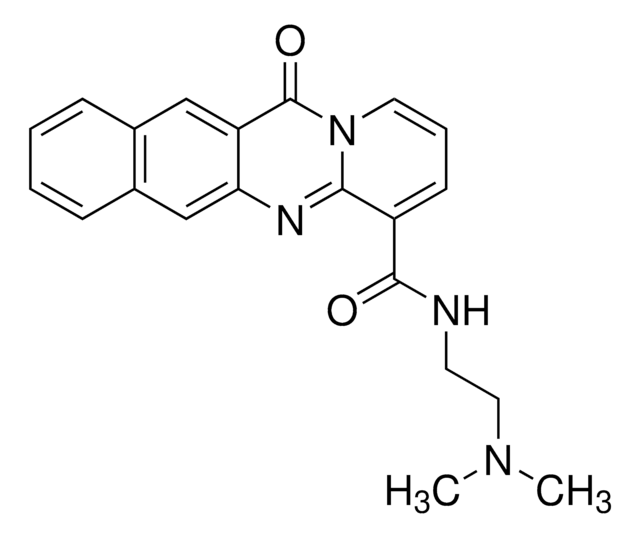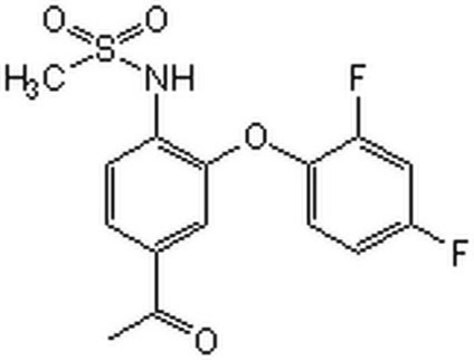5.09911
RNA Polymerase I Inhibitor II, BMH-21
Synonym(s):
RNA Polymerase I Inhibitor II, BMH-21, BMH21, rRNA Transcription Inhibitor II, N-(2-(Dimethylamino)ethyl)-12-oxo-12H-benzo[g]pyrido[2,1-b]quinazoline-4-carboxamide, N-(2-(Dimethylamino)ethyl)-12-oxo-12H-benzo[g]pyrido[2,1-b]quinazoline-4-carboxamide, BMH21, rRNA Transcription Inhibitor II
About This Item
Recommended Products
Assay
≥98% (HPLC)
Quality Level
form
powder
manufacturer/tradename
Calbiochem®
storage condition
OK to freeze
protect from light
color
orange-yellow
solubility
DMSO: 1 mg/mL
5% acetic acid: 25 mg/mL
storage temp.
2-8°C
SMILES string
[n]21c(nc3c([c]2=O)cc4c(c3)cccc4)c(ccc1)C(=O)NCCN(C)C
InChI key
BXYDVWIAGDJBEC-UHFFFAOYSA-N
General description
Please note that the molecular weight for this compound is batch-specific due to variable water content.
Biochem/physiol Actions
rDNA
Packaging
Warning
Reconstitution
Other Notes
Peltonen, K., et al. 2010. PLoS One5, e12996.
Legal Information
Signal Word
Warning
Hazard Statements
Precautionary Statements
Hazard Classifications
Acute Tox. 4 Oral
Storage Class Code
11 - Combustible Solids
WGK
WGK 3
Flash Point(F)
Not applicable
Flash Point(C)
Not applicable
Certificates of Analysis (COA)
Search for Certificates of Analysis (COA) by entering the products Lot/Batch Number. Lot and Batch Numbers can be found on a product’s label following the words ‘Lot’ or ‘Batch’.
Already Own This Product?
Find documentation for the products that you have recently purchased in the Document Library.
Our team of scientists has experience in all areas of research including Life Science, Material Science, Chemical Synthesis, Chromatography, Analytical and many others.
Contact Technical Service









